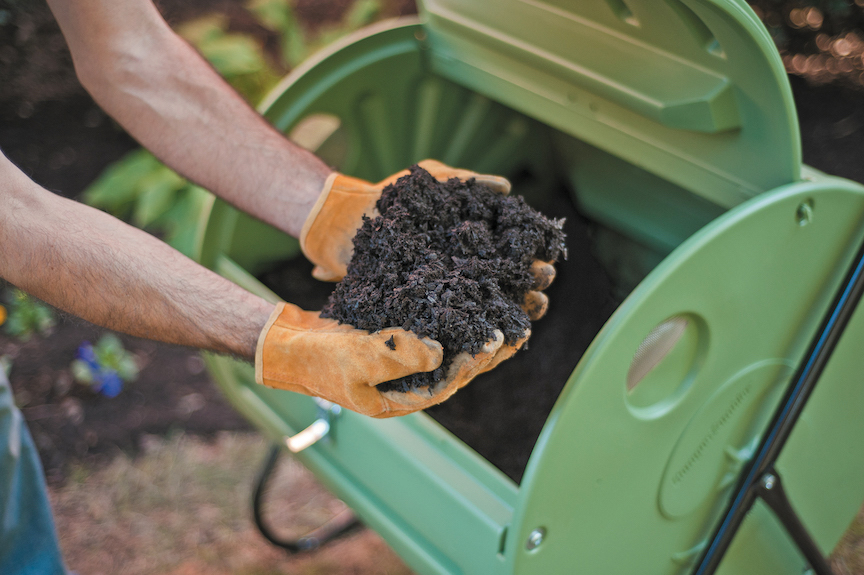
Gardening Green with Doug
Committing to Organic Gardening is an Investment in the Future
By Doug Oster
April 1, 2022
As a toddler in the 1980s, my son walked barefoot through powdered Sevin, a chemical insecticide. He was meandering through the vegetable garden in search of some spring snow peas.
I had applied the pesticide as an inexperienced gardener, after asking a garden friend for advice on dealing with cabbage worms. It was the way my parents and grandparents gardened, and I didn’t know any better.
I was shocked when I read the back of the package of that pesticide. It was a sobering epiphany — watching my son being exposed to that toxin — and it changed everything about the way I gardened.
I headed to the library, researching everything I could about this new style of gardening I had heard about — organic gardening.
In a pre-Internet era, I discovered through a host of books that organic gardening wasn’t new at all. In fact, all gardeners were organic before WWII, as these chemical pesticides, herbicides and fertilizers didn’t exist.
I vowed to never use a chemical in the garden again.
Instead, I found a new way to garden, one in which nature sets up an amazing balance where the good bugs eat the bad bugs and everyone is safe — including those living downstream.
The key to the whole system is improving the soil with organic matter like compost. When plants are growing in compost, they have everything they need. When plants have everything they need, they outgrow most pests and diseases.
Every time something is planted in the garden, compost is added to the soil.
Many organic gardeners make their own compost. Anything that was once living will become compost. Out of the kitchen, things like vegetable scraps, eggshells, coffee grounds, fruit peelings, unbleached paper towels are saved in a bin or pile outdoors. Meat, creamy dairy products and oils are avoided as they can attract rodents.
Anything out of the garden that wasn’t diseased can be put in the compost pile too.
It’s also a great way to recycle, as nearly half of what used to be put in the trash, now stays on-site and will be transformed into compost for the garden.
It takes about a year for the material to become compost, but a rotating bin will produce compost much more quickly, sometimes in just 45 days.
The Pennsylvania Resources Council has great composting classes. Students receive a compost bin upon completing the class.
Compost can also be purchased by the bag or truckload and is even offered for free from some municipalities, who make it out of fall leaves.
Making the transition to organics is easy, dealing with pests and diseases is just done differently. Whatever the problem, it’s identified and dealt with specifically without disrupting the balance of nature.
When I put that broad-spectrum pesticide on my cabbage to deal with the worms, I accomplished my goal of killing the cabbage worms. But I wasn’t looking at the big picture. Not only did I kill the bad bug, I killed all the good bugs and my soil life too.
Something as simple as knocking pests into a can of soapy water is an effective organic solution for an insect problem.
There are physical barriers like a floating row cover. This spun-bound translucent fabric is reusable and inexpensive. It’s so light that the plants themselves hold it up and it keeps the bugs from landing on your crops.
One great organic product for dealing with chewing bugs is called Captain Jack’s Dead Bug Brew. Its active ingredient, Spinosad is ingested by the insect which affects the bug’s nervous system and eventually kills them. The good bugs aren’t bothered, as they don’t chew on plants, and it’s a safe product for the environment.
A strong hose spray will blow aphids off plants and they will be unable to crawl back up the plant.
Sluggo is an iron-based pellet which will safely take care of slimy slugs.
Mulch is another important component for keeping the soil evenly moist and preventing weeds. It’s a way to keep fungal disease at bay naturally too.
Organic fertilizers will also help boost plants, but not harm soil life as a chemical fertilizer will.
Granular fertilizers like Gardentone, Flowertone, Planttone and a host of others from Espoma are inexpensive and easy to find.
Drammatic liquid organic fertilizer is made from fish and is available online or locally at Hahn Nursery and Chapon’s Greenhouse.
By eliminating chemicals from the garden, pollinators, birds and other creatures will help keep the garden going strong.
Attracting good bugs by adding small flowing herbs like, dill, fennel, oregano and others. Zinnias, Mexican sunflowers, sunflowers and a host of other plants will bring in lots of life which helps us garden.
There’s nothing better than watching wrens hunt cabbage worms to feed their young.
The organic garden is a positive place, as it feels so good to know that the landscape is safe place for everything from microbes, to earthworms to the family dog.
My son is grown now and his daughter has just started to walk. I’ll never have to worry about what she’ll be exposed to along the garden path as she searches for spring snow peas.
It’s a lesson learned over 30 years ago that will persist as long as I do.
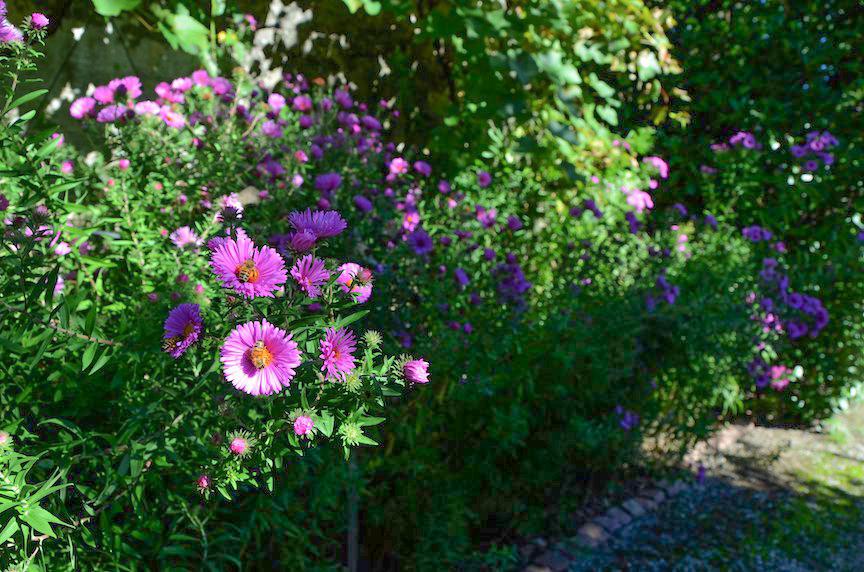
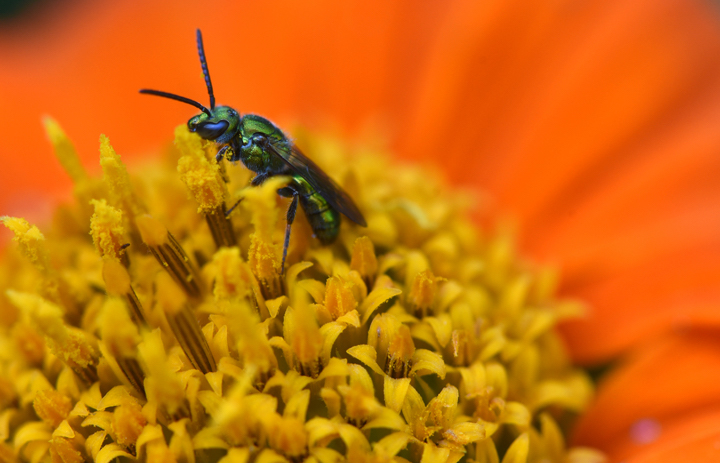
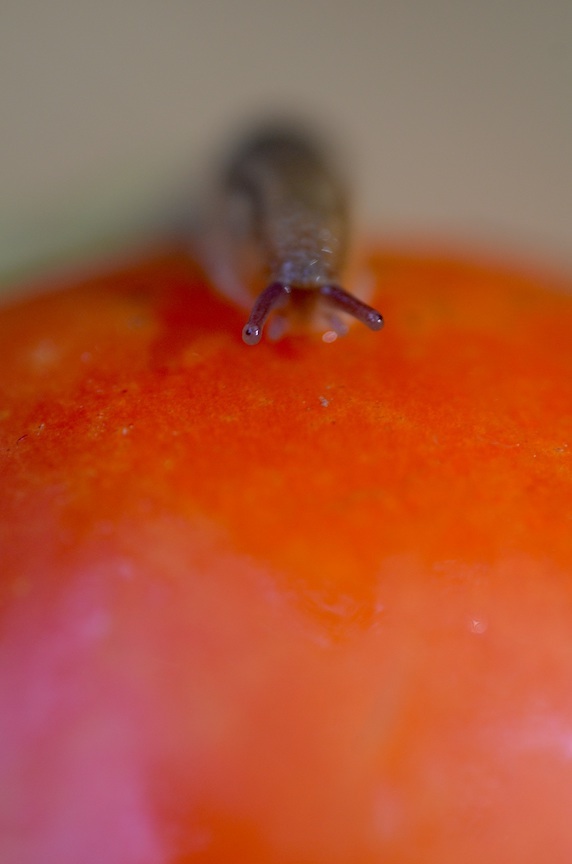
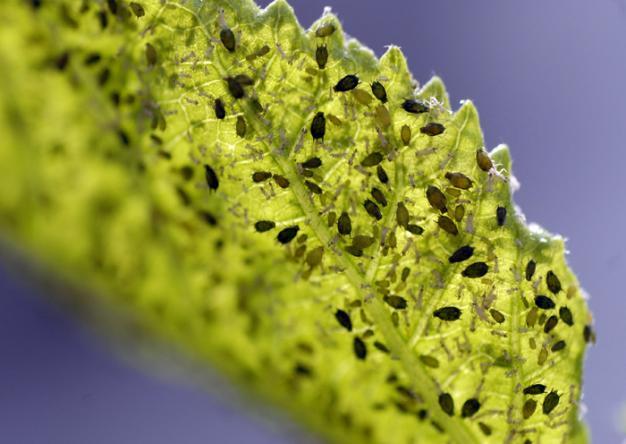
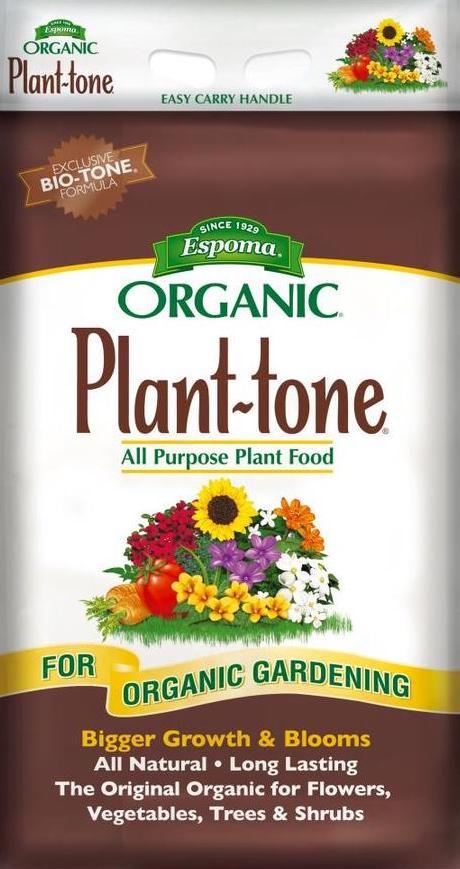
See Doug at Bedner’s Farm and Greenhouse
Doug will talk about growing vegetables in containers at Bedner’s Farm and Greenouse in Cecil on Saturday April 9, 2022 at 11 a.m. The class is free but reservations are required.
See Doug in Butler
Doug will appear at the Butler Home Show on Sunday, April 10, 2022, at the Family Sports Center on Rt. 68. He’ll present “Organic Gardening Works for Everyone.” Admission to the show is free.

Leave A Comment